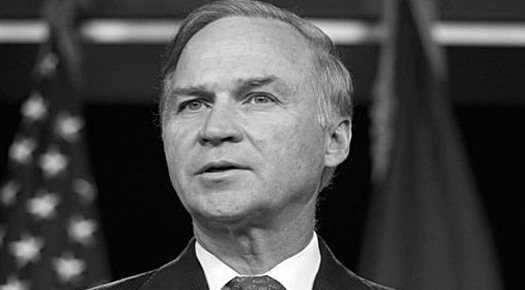
The taxpayer-funded Congressional Prayer Caucus gathers in an ornamental room in the United States Capitol on a weekly basis to support the role of Christian faith and prayer as part of American governance. The caucus, founded by Republican representative Randy Forbes in 2005, now includes approximately 90 members of the House, most of whom are Republicans, one senator and one paid staff member.
“In addition to their commitment to putting aside political differences and uniting in prayer for our nation, members of the Congressional Prayer Caucus work together engaging the legislative process to protect free exercise for Americans of every faith or no faith,” Forbes said in a statement. “Some recent issues Prayer Caucus Members have engaged in include reinforcing religious freedom for all faiths in the military, supporting and protecting the autonomy of churches and faith based organizations, and working to ensure every American is free to live according to their beliefs without fear of punishment by the government.”
Forbes declined to speak with USA Today, first to report this story.
Like most other congressional caucuses, members of this particular caucus bring in shares of their taxpayer-sponsored office accounts to contribute to the approximately $50,000 yearly salary of its one paid staff member, Amy Vitale, who is responsible for tracking legislation, drafting letters and generally supporting all agendas of the caucus. The Prayer Caucus, which also receives support from an independent non-profit organization, operates out of the same building that Forbes owns and uses to run his campaign office from. Members of the caucus regularly meet in the House majority leader’s ceremonial office to pray for the country and those constituents that are in distress; often signing messages of support, which are then sent out to them. Additionally, the members aim to extend the reach of faith and prayer in the public domain.
“We do what we can to make sure that legislation emerges with what we believe to be American, Christian values,” said caucus member John Fleming, R-La. “We believe that a democracy is only functional if there is a certain level of virtuousness among the nation. Freedom also requires a certain responsibility and that requires a certain moral code. The moral code that we as Americans have lived by for over 200 years is based on what? The Ten Commandments.”
Evidently, the caucus has been trying to expand beyond the United States Capitol.
“Forbes and the Caucus will bring to our attention where religious liberties have been under attack,” said caucus member Joe Wilson, R-S.C. “We try not to be judgmental or argumentative, but we will bring to the attention of authorities what the law is that protects religious liberty.”
For instance, the caucus sent a letter to the Navy earlier this year, defending notorious chaplain Wesley Modder, who had reportedly been disciplined after rebuking sailors on subjects of homosexuality and premarital sex.
“Modder’s beliefs on sexual intimacy do not constitute a legally viable reason to bring action against Chaplain Modder or any member of the military,” the caucus members had written. “It is dangerous to fall prey to the fundamentally false proposition that individuals who support natural marriage can only be motivated by animus for others.”
Forbes and other caucus members also forced the Air Force to rewrite its rulebook, making sure that all instructions about the supremacy of religious neutrality in the military are removed and more protections for the expression of radical religious views are offered to servicemen.
To make matters worse, the Congressional Prayer Caucus Foundation follows an even more aggressive approach.
“There is a concerted effort to remove God from our culture, and negate the influence that the Christian faith had on establishing the principles upon which our liberties are secured,” says the mission statement on its website. “This has created an environment where the facts regarding the role Judeo-Christian principles play in establishing and maintaining a free Republic are being eliminated. We are creating a movement to reverse this trend.”
The foundation urges Americans to organize ‘Room 219’ prayer groups in honor of the room in the United State Capitol, where the Prayer Caucus meets on a weekly basis and encourages state legislatures to create similar caucuses.
Roy Speckhardt, executive director of American Humanist Association, said it is clear how the caucus has been pushing to merge church and state, especially when it concerns making Christian prayer a part of government responsibility.
“The caucus is trying to use the power of government to be on the side of a particular religious viewpoint,” he said. “They are trying to give the appearance that certain types of religious activity and certain types of religious belief are endorsed by the government.”
Photo Credits: Huff Post Politics
